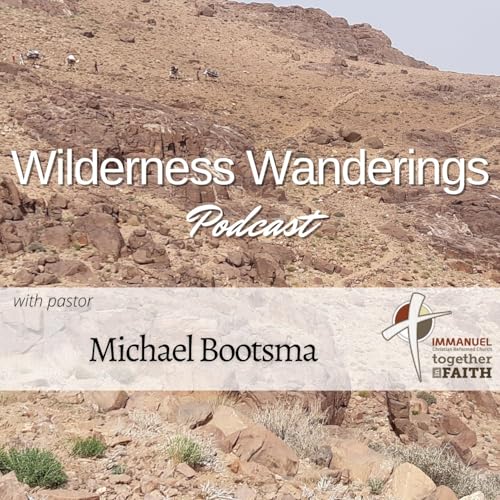
Knowledge
No se pudo agregar al carrito
Add to Cart failed.
Error al Agregar a Lista de Deseos.
Error al eliminar de la lista de deseos.
Error al añadir a tu biblioteca
Error al seguir el podcast
Error al dejar de seguir el podcast
-
Narrado por:
-
De:
Grace and peace be yours in abundance through the knowledge of God and of Jesus our Lord. His divine power has given us everything we need for a godly life through our knowledge of him who called us by his own glory and goodness… For this very reason, make every effort to add to your faith goodness; and to goodness, knowledge… For if you possess these qualities in increasing measure, they will keep you from being ineffective and unproductive in your knowledge of our Lord Jesus Christ (2 Peter 1:2,3,5,8).
Returning to the list of virtues, we come to knowledge, which looms large in the opening words of the letter. These opening 8 verses reveal that knowledge has little value in and of itself but is tied to other things. When we consider Job's three friends, and even Job himself—all thinking they had knowledge of the ways of God—we recognize that knowledge can be dangerous. When God finally speaks, he askes the four friends, "What do you know?" The answer: 'Not much'. Paul warns us that knowledge puffs up (1 Corinthians 8:1). So, let's be careful.
What should be say about knowledge? First, it is a conduit. The grace and peace of God enter our lives through knowledge. They are gifts God gives, but they require knowledge to be opened. Secondly, knowledge produces godly lives helping us to be 'effective and productive' followers of Jesus Christ. It assists in bringing fullness of life—a deep, abiding commitment to the ways of God. While useless if unattached, knowledge brings incredible spiritual beauty to the world when well connected.
Thirdly, Peter is writing about 'knowledge of God and of Jesus our Lord', 'knowledge of him who called us' and 'knowledge of our Lord Jesus Christ'. He is concerned with knowledge of a person, gained through long personal intimate relationship. Of course, such knowledge includes facts. In our relationship with a close family member, we know their birthday, significant events that impacted their lives, their favourite colour, and important people they have lost. Yet, it is much more.
The more we get to know someone the more there is yet to know. Even spouses still surprise each other after 50 years of marriage. One of the joys of being in a good intimate relationship is that the closer we are to someone the more we want to know them and bring delight into their lives.
In verses 2,3, and 8, Peter uses a Greek work that suggests 'full of knowledge'. But in verse 5, he uses a different word which suggests the gathering of information. We are to put ourselves to the task of getting to know God so that we can be full of knowledge, thereby receiving his grace and peace and living effective Christian lives. This is a slow piece-meal, lifelong process.
How do we gain this knowledge? The Belgic Confession says that God reveals himself "by the creation, preservation, and government of the universe" and more "clearly in Scripture". Jesus said that true worshippers worship in spirit and in truth and that where two or three are gathered in his name, he is with them. Worship and Christian fellowship are spaces where intimate knowledge, governed by Scripture, is often experienced.
Jesus tells us that we are to love God with all our being, including our minds. Knowledge is not the goal. Love is. Knowledge puffs up. Love builds up. "Whoever loves God is known by God" (2 Corinthians 8:3).
So, as you journey on:
Grace and peace to you many times over as you deepen in your experience with God and Jesus, our Master. Grow in grace and understanding of our Master and Savior, Jesus Christ. Glory to the Master, now and forever! Amen! (2 Peter 1:2; 3:18).


